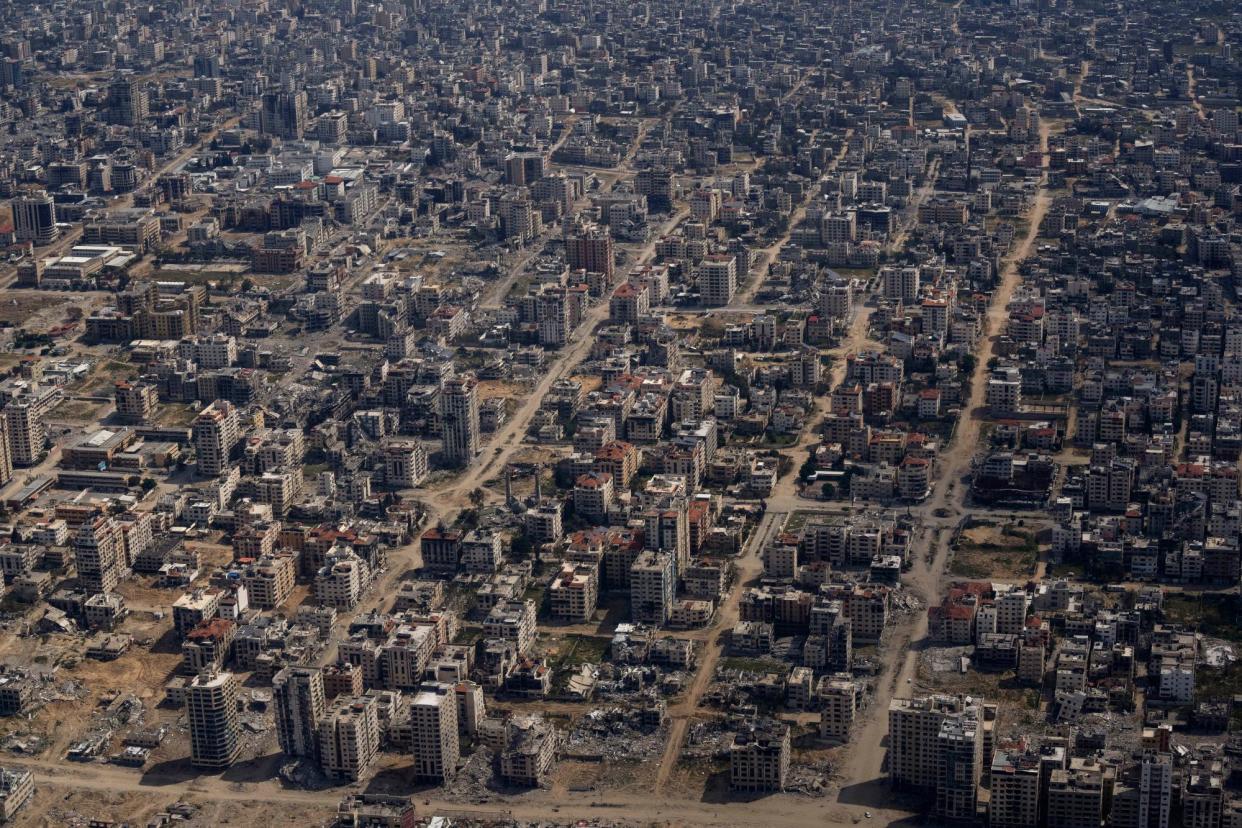Israeli forces kill 20 Palestinians waiting for aid, Gaza health ministry says

Gaza’s health ministry has said Israeli fire killed 20 people waiting to receive desperately needed aid in the besieged Palestinian territory, but the Israeli military said the reports were “erroneous”.
Gaza officials said the attack occurred as a crowd gathered to receive aid from a truck at the Kuwait roundabout, a key interchange used by humanitarian convoys carrying food into northern Gaza. More than 150 people were wounded, they added.
The latest incident came hours after eight people were killed in an airstrike on an aid distribution centre at al-Nuseirat camp in central Gaza, health officials said.
In a statement, Israel’s military denied attacking aid distribution points and described the reports as “false”, though it was not immediately clear which incident it was referring to.
“As the IDF [Israel Defence Forces] assesses the incident with the thoroughness that it deserves, we urge the media to do the same and only rely on credible information,” the statement said.
The Gaza conflict has displaced most of the territory’s 2.3 million people, and there have been chaotic scenes and deadly incidents during aid distributions in recent weeks.
Regarding the Kuwait roundabout incident, Mohammed Ghurab, the director of emergency services at a hospital in northern Gaza, said there were “direct shots by the occupation forces” on people waiting for a food truck.
Related: Charity hopes to send second food aid ship to Gaza in next few days
An Agence France-Presse journalist on the scene said they saw several bodies and people who had been shot.
Aid agencies in recent days have sought to vary the routes for convoys to avoid large numbers of people gathering and potentially stopping the vehicles.
“The problem is there are very few routes to take and all are very difficult to travel on – there have been tanks driving up and down them for months and they are basically just strips of rubble now – so people can predict where the trucks are going to be,” said an NGO official in Gaza, speaking on condition of anonymity.
The UN has warned of famine in Gaza, which Israel has besieged since the start of the war on 7 October after Hamas’s unprecedented attack.
The humanitarian emergency has prompted some countries to diversify aid supply routes, including by aird and sea, as land access to Gaza via Jordan, Israel and Egypt remains limited.
On Friday, a Spanish aid ship sailed close to the Gaza coast, a first voyage to test what is hoped will become a maritime corridor from Cyprus.
Hamas has presented a renewed Gaza ceasefire proposal to mediators and the US which includes the release of Israeli hostages in exchange for freedom for Palestinian prisoners. The office of the Israeli prime minister, Benjamin Netanyahu, said the new Hamas position was based on “unrealistic demands”.
Mediators, including Qatar, Egypt and the US, had hoped to conclude a deal before Ramadan, the Muslim holy month, which began on Monday. In Jerusalem, authorities have deployed thousands of police around the Old City for Friday prayers.
The war was triggered when Hamas launched a surprise attack into southern Israel in October, killing about 1,200, mostly civilians. The militant Islamist organisation seized about 250 Israeli and foreign hostages, dozens of whom were released during a week-long truce in November. Israel believes about 130 of the captives remain in Gaza and that 32 of them are dead.
Israel’s retaliatory campaign of bombardment and ground operations in Gaza to destroy Hamas has killed at least 31,341 people, most of them women and children, according to the health ministry.
With Reuters and Agence France-Presse


